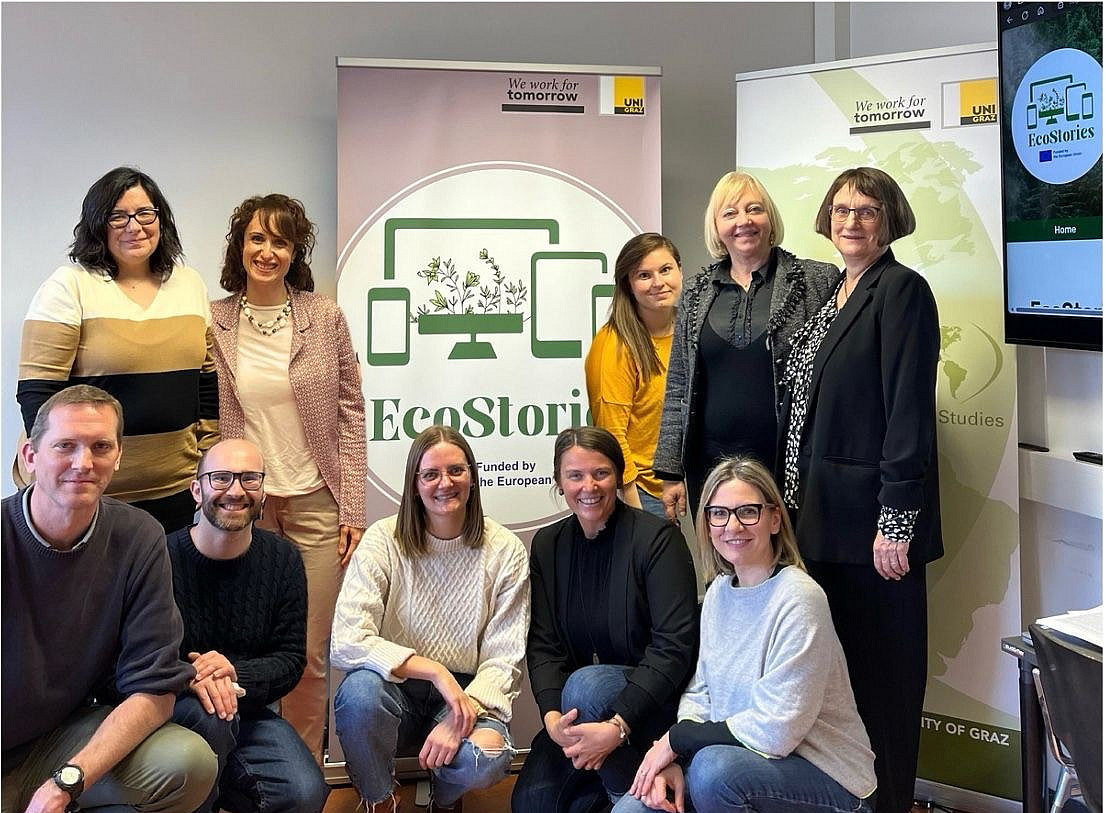How do you think a sea turtle feels when its fellow turtles are caught in a fishing net? This question encouraged one of Erich Horne's students to invent an entire story about a family of turtles. “Through her story, she was able to take on the perspective of the sea turtle and thus develop a more profound understanding of the threat to these animals,” says Horne.
He teaches in elementary school at the Colegio de La Presentation in Malaga and takes part in the Erasmus+ program “EcoStories”, which is led by researchers from the University of Graz. “The great thing about it is that the stories give the topic a personal note,” says Horne. “The children use all their senses to create their own experiences and fantastic adventures.”
Knowledge through the back door
The “EcoStories” project evolved from an international research program that firstly focused on the topic of Covid-19 during English lessons. While covering this topic, students regularly confronted their teachers with questions about the climate crisis as well. “The clear needs of young people along with the positive experiences of the scientists and teachers motivated us to continue the collaboration in this new project,” explains project coordinator Eva Bauer from the University of Graz.
“With this Erasmus+ program, students are to develop stories about the climate crisis and environmental protection in English lessons,” explains project lead Roberta Maierhofer. “In this way, the children learn the foreign language through the back door, so to speak, without the monotonous repetition of vocabulary or grammar.”
Appealing to emotions
Victoria Bergner from the Ursulinen secondary school in Graz reports that the lessons also deal with very basic questions such as “Why does it concern me?, I am safe here, aren’t I?” Her experience: “When the children are allowed to develop their own stories about the climate crisis, they find an answer to this question.” “The pupils are proud of their stories and want to share them with others. This motivates them to engage with the topic.”
Bergner sets tasks such as “What will holidays in France look like in 2060?” or “How high would the sea level have to rise for Graz to be underwater?”. This encourages young people to imagine the future from certain perspectives. “When children engage emotionally with a story, it's not just the content that they remember better, but also the English words that go with it.”
New teaching material
The teachers are supported by researchers from the University of Graz, Ca'Foscari University in Venice and the University of Malaga. “The aim is to design useful teaching materials that are based on facts but are also fun,” explains Nicole Haring, post-doctoral researcher in the project. The teachers are involved in this development and contribute their insights and ideas.
Strengthening trust in science
This is a new experience for teachers, says Mara Zordan from the Tronzanella School in Venice. “The students are excited about the opportunity to write their stories. They can be free in their creativity, and they develop something special.” The fact that every voice can be heard is very moving for the teacher. “Some young people don't like presenting in front of the class and tend to hold back. But they can record a video at home in a familiar environment and then play it for the class.”
Zordan gives the students complete freedom for the creative process. “They engage intensively with the subject and produce very different formats. These range from texts and presentations to TikTok videos.”
For University of Graz Vice-Rector Mireille van Poppel, initiatives like this Erasmus+ project are crucial for the future: “With this program, we are strengthening children's trust in science.”
Project-Link: EcoStories
